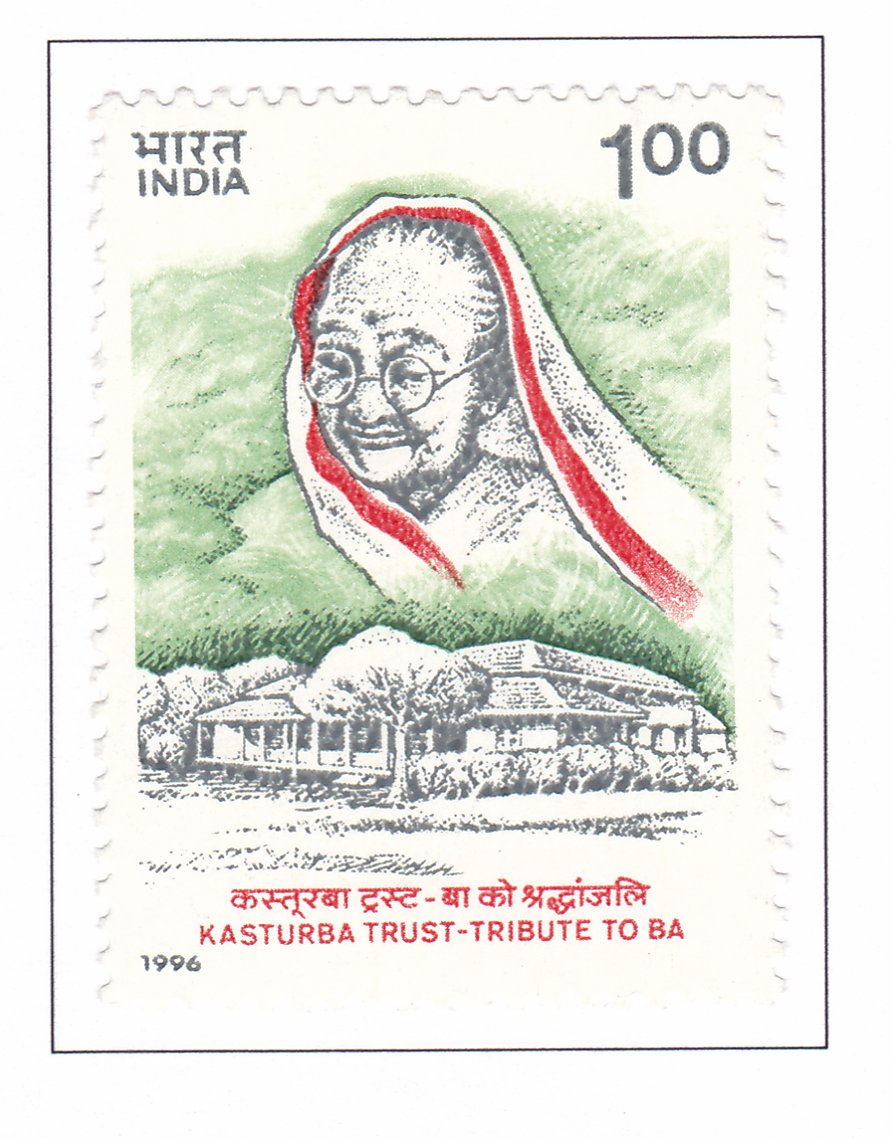Kasturba Trust – Tribute to BA

Technical Data
| Date of Issue | February 22, 1996 |
|---|---|
| Denomination | Rs. 1 |
| Quantity | 1,000,000 |
| Perforation | comb 13 |
| Printer | Security Printing Press, Nashik |
| Watermark | No Watermark |
| Colors | Multicolor |
| Catalog Codes |
Michel IN 1489 Stamp Number IN 1554 Yvert et Tellier IN 1288 Stanley Gibbons IN 1652 |
| Themes | Anniversaries and Jubilees | Buildings | Famous people | Optical Instruments | Women |
Table of Contents
Kasturba Trust – Tribute to BA
Kasturba Gandhi, born in April 1869 in Porbandar, Gujarat, was a remarkable figure in India’s struggle for independence and a steadfast companion to her husband, Mohandas Karamchand Gandhi (Mahatma Gandhi). Married at the young age of 13, Kasturba’s life was deeply intertwined with the Gandhian movement, both in South Africa and India.
Key Moments in Kasturba Gandhi’s Life:
- South Africa (1896-1915): Kasturba joined Gandhi in South Africa in 1896, where she became involved in the early phases of Satyagraha, aimed at securing rights for the Indian community. She played a crucial role in the establishment of the Phoenix Ashram and later the Tolstoy Farm, where principles of self-reliance and communal living were practiced.
- Return to India and Freedom Struggle: Upon returning to India, Kasturba Gandhi immersed herself in the Indian freedom movement. In 1917, she participated in the Champaran Satyagraha in Bihar, focusing on the upliftment of rural women. Her nurturing presence was felt at the Sabarmati Ashram in Ahmedabad and the Sevagram Ashram in Wardha, where she became a maternal figure to many who joined the freedom struggle.
- Imprisonments: Kasturba Gandhi’s dedication to the cause saw her repeatedly imprisoned. Notably, in 1939, she was arrested during the Rajkot Satyagraha and detained at Tramba (now Kasturbagram). Her involvement in the Quit India Movement in 1942 led to her final imprisonment, during which she passed away on February 22, 1944.
Kasturba Gandhi National Memorial Trust:
After her death, the nation mourned deeply, and an appeal was made to raise funds in her memory. The overwhelming response resulted in a collection of over Rs. 1 crore and 31 lacs, which Mahatma Gandhi used to establish the Kasturba Gandhi National Memorial Trust in 1945. The Trust was created with the aim of serving rural women and children, empowering them to contribute meaningfully to society.
Work and Legacy of the Trust:
- Headquarters and Reach: The Trust is headquartered at Kasturbagram in Indore, Madhya Pradesh, with provincial headquarters and over 600 centers across India.
- Initiatives: The Trust is engaged in numerous activities, including health and education services in remote areas, raising awareness among rural women, providing shelters for women in distress through “Ba Ka Ghar,” and working to eradicate alcoholism to improve the quality of life for women and children in rural communities.
Commemoration:
In recognition of Kasturba Gandhi’s immense contributions, the Department of Post issued a commemorative postage stamp to mark the 50 years of service by the Kasturba Trust. The stamp serves as a tribute to her indomitable spirit and lifelong dedication to the cause of India’s independence and social reform.
